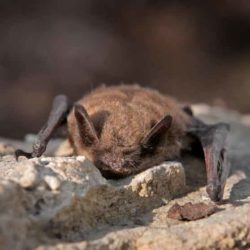As a rule, animals are great. We love them, and many of us don’t mind when certain animals visit our property. Squirrels on fences can be cute. A bumbling raccoon in the backyard can be funny. But some animals aren’t quite as much fun, like snakes slithering on your lawn or a skunk exploring your shrubs.
All animals—fun and not fun alike—can cause problems in our yards. They can get into trash, damage our property, leave droppings and urine, and bring parasites like fleas, ticks, and lice. In some cases, they may even be dangerous thanks to painful or venomous bites. If you want to keep pests from invading your lawn and home, there are a few steps you can take to prevent them from coming to say hello.
Reduce Water
Standing water gives pests a reason to stay as it accumulates in your lawn and attracts thirsty animals, who will establish a home near what is a newly available water source. To avoid this problem, consider the following:
- Fix any broken or clogged gutters. This will keep rainwater from pooling around your home. It will also prevent water damage around your home’s foundation if gutters overflow.
- Take care of puddles. Jumping in puddles is fun for children, but pests love them, too. Consider putting gravel in low areas or build up the landscaping around your home to force water away. As with gutter repairs, this will also help prevent water damage to your foundation.
- Get rid of items that collect water. If items in your yard collect standing water, it’s best to move them inside a shed or garage. If this isn’t possible, try to turn them to reduce water accumulation. Tip wheelbarrows, wagons, and plastic swimming pools over to eliminate the risk of them filling up with water.
- Protect water sources with fencing. If you have a water source on your property that you’d like to keep, such as a small pond or water feature, consider protecting it with fencing to deter wildlife.
Reduce Food Sources
Fence off your garden. If you grow vegetables, berry bushes, or fruit trees, protecting them with fencing goes a long way. Dig a small trench for your fence, then fill it in with dirt to prevent animals from tunneling underneath.
Secure exterior trash bins. If you keep trash cans outside, ensure that they are always securely closed and placed in a way as to not be tipped over. Tight-fitting lids can help seal smells inside—and keep curious critters from trying to open them up.
Reduce insect habitats. Because many animals eat bugs, keeping your home insect-free can also help keep it animal-free. Reduce conditions that are attractive to bugs like keeping twigs, leaves, leaf litter, and wood chips raked up.
Reduce Harborage (Habitats)
If animals see lots of places to build a home, they’ll try to explore your yard. Lawn clutter, leftover construction materials, toys, and other objects should be placed at least 20 feet from your home.
Seal Walls and Other Areas
Wildlife may look for harborage in your home as well. Seal off areas that might be attractive and targeted by wildlife. Chicken wire can help keep animals out from under decks, steps, and porches. Fill holes in your exterior walls as soon as possible, and watch out for insect, bird, or rodent damage. Keeping your home as clean and free of water damage as possible will reduce the number of entryways. Also, lock your second and third story windows: Raccoons are just as resourceful as human burglars.
Watch Out for Animal Activity
Always be on the lookout for the signs of wildlife on your property: trash cans that have been tampered with, holes dug in your yard, the smell of skunk, chew marks on wood, animal noises, and droppings. Most animals will leave droppings as they explore near your home. If you’re seeing lots of droppings near walls or on horizontal surfaces, you should call a professional to examine the pest pressures on your property.
Wildlife Control
If an animal (or animals) have invaded your home, reach out to McCall for immediate assistance. The wildlife specialists in our wildlife control division are not only equipped and trained to safely remove wild animals, but they will also perform a thorough inspection and provide a professional diagnosis of what conditions are bringing these animals into your yard. Wildlife control is more than removing animals; it is a comprehensive process of eliminating attractants, analyzing pest pressures, and installing pest-proofing.
At McCall, we do it all. Our technicians have the most advanced training and equipment to completely address your wildlife issue. Don’t settle for anything less. If animals around your home are giving you grief, contact us today.contact us today.


